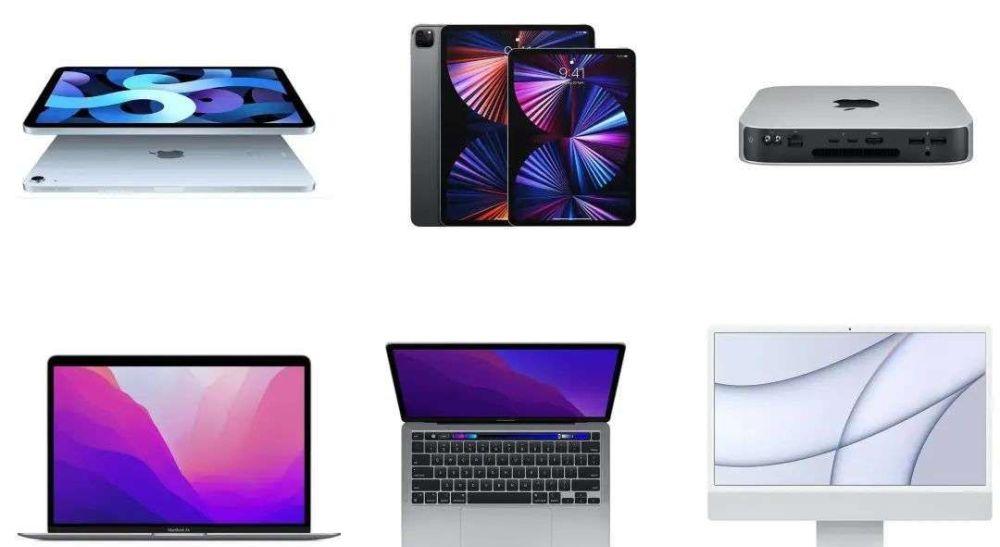In the recently concluded Apple conference, the new iPad Air did not use the A15 as previously analyzed by major analysts, but directly used the M1.
This phenomenon makes many netizens very strange, and some netizens went to look at Apple's official website and quickly found that there are now six products equipped with M1 chips: new iPad Air, iPad Pro, Mac mini, MacBook Pro, MacBook Air, iMac 24 inches.

From entry-level to high-end, from desktop-level to mobile-level, different forms, different prices, different positioning of products, all use the same chip, Apple is not afraid of consumers to produce false guidance, affect sales?
As the underlying foundation of computing devices, chips are the core of a product and one of the best ways to attract consumers.
As apple's first product to switch to the ARM architecture, M1's performance is needless to say, since its release a year ago, its performance and power consumption have been recognized, and even increased the competitive pressure of other chip manufacturers.
One of the reasons why M1 chips are used on a variety of products with different positioning and morphology is that the consistency of the software experience is reflected in the places that are extremely easy to perceive in our daily use experience - system fluency and common functions.
Moreover, the use of M1 chips in different models and forms of equipment is also conducive to increasing shipments and increasing Apple's share in the chip market.
The more people use it, the more they can prove the value of the chip, which is conducive to M1 standing firm, further enhancing Apple's image in the public mind, and possibly even raising the value of the stock.
Compared with apple's affordability strategy on iPhone, Apple Watch and other products in the past, the reuse of M1 chips has gone further and achieved cross-product, not only mac product lines can be used, iPad product lines can also be used.
This is actually a direct application of the "anchoring effect", before iMac has always been a desktop product, the use of higher performance desktop-level chips, now M1 chips came to the iPad Pro and iPad Air, it is easy to establish in people's minds these two products have higher performance, can do desktop-level work psychological expectations.
That's all, do you have any other thoughts?